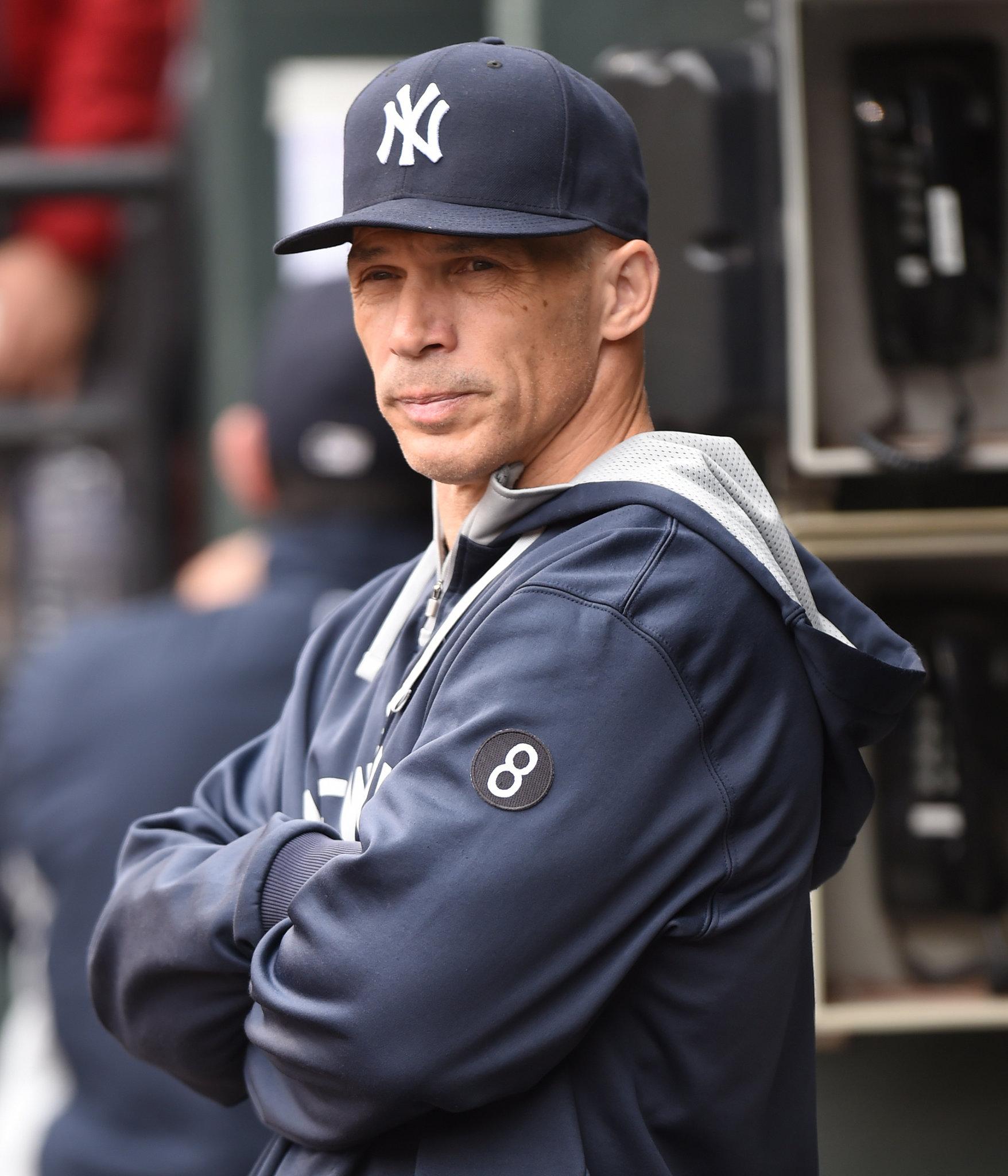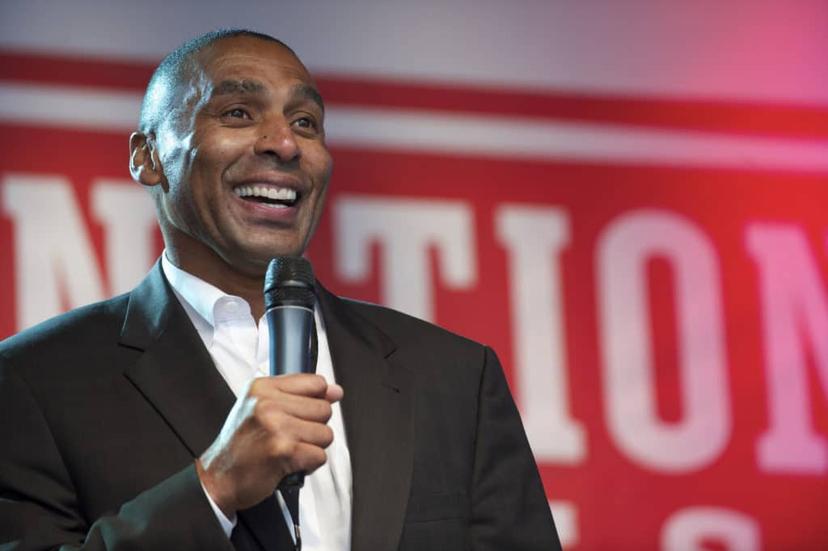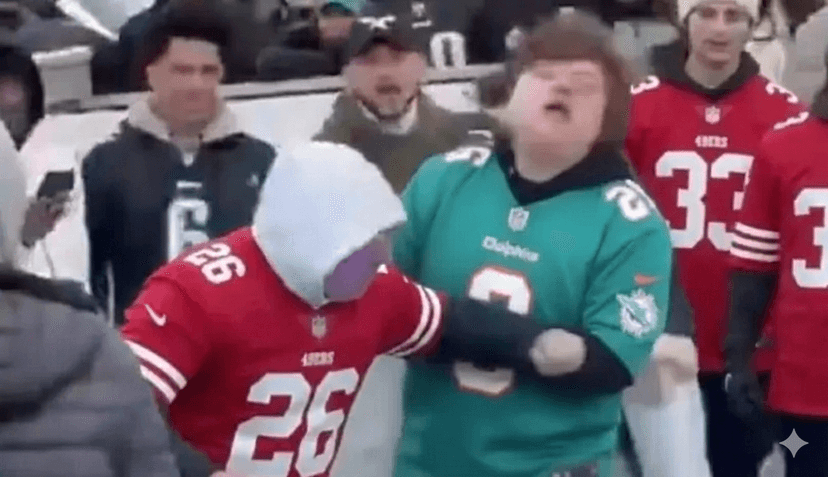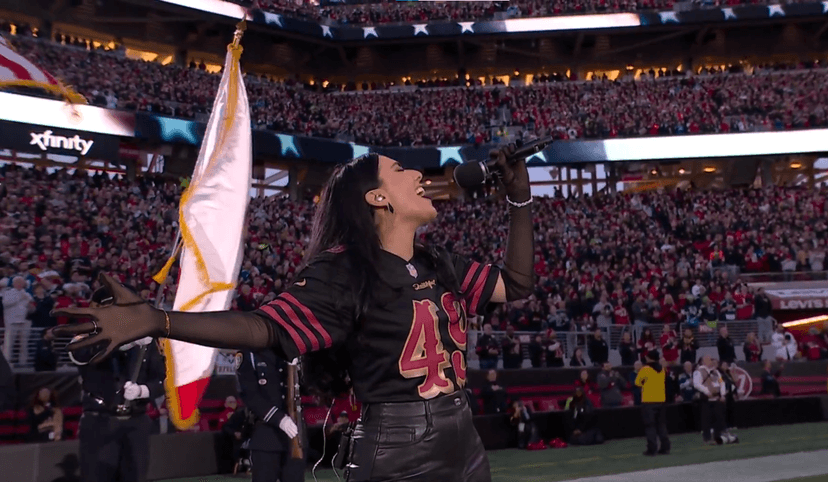“Just a Joke?” — How 37 Seconds Ended a Chicago Teacher’s Career
In a world where a single moment can define a lifetime, Lucy Martinez, a 32-year-old elementary school teacher from South Chicago, learned this harsh reality. Known for her vibrant art projects and unwavering patience with students, she became a national symbol of controversy after a 37-second video clip sparked a citywide debate on accountability, forgiveness, and the internet’s unrelenting power.
The Moment That Changed Everything On a chilly afternoon at a small downtown Chicago rally, amid restless chants echoing off courthouse walls, Lucy stood observing with friends. She wasn’t protesting; she was merely present. A nearby man shouted sarcastically, “Too bad he can still talk!” The crowd chuckled awkwardly, and Lucy, aiming to lighten the mood, replied, “Maybe next time, the mic will miss him too!”
It was a thoughtless quip, intended as fleeting banter. But a camera captured it. That night, the 37-second clip was uploaded online with the caption: “Chicago teacher mocks public figure’s death — caught on camera.” By morning, it had over 800,000 views; by noon, millions. Lucy’s face dominated local news, her words looped without context alongside outraged commentary.
The Internet’s Swift Judgment Online, explanations were irrelevant. Within hours, Lucy was labeled “heartless” and “unfit to teach.” Anonymous accounts flooded Lakeshore Elementary’s social media demanding her dismissal. Parents inundated the district office. Reporters camped outside the school.
Inside, tension mounted. Teachers whispered in hallways; the principal called an emergency meeting, urging silence. The school website went offline for “scheduled maintenance,” fueling parental suspicion. Rumors spread rapidly, casting Lucy as a villain before she could respond.
Who Was Lucy Martinez? Before the incident, Lucy was beloved at Lakeshore Elementary, a modest school amid maple trees and working-class homes. For nearly a decade, she taught third graders, filling classrooms with colorful murals and poetry projects. She brought snacks for forgetful kids and stayed late for struggling readers. “She wasn’t political,” a colleague said. “This blindsided us.”
Yet the internet ignored her history. To millions, she was a symbol of insensitivity.
The School’s Response Tuesday morning, Lucy arrived hoping for normalcy. Reporters shouted questions; students sensed unease. By noon, she was placed on administrative leave, surrendering keys, ID, and laptop. Her desk was cleared by day’s end.
The district issued a vague statement acknowledging a “video involving an employee” and promising review. By Thursday, her name vanished from the faculty directory; by Friday, her email was deactivated—signaling termination to some, a cover-up to others.
A City Divided Chicago erupted in debate. Radio hosts criticized slow action; online petitions demanded firing or leniency. Social media became a battleground over “cancel culture” versus accountability. “It’s about the example teachers set,” one parent argued on TV. A former student countered: “She made a mistake. We all say dumb things. She got caught.”
The controversy exposed a society addicted to outrage, where one moment overshadows a lifetime of good.
The Internet’s Ruthless Machine Strangers dissected Lucy’s old posts, twisting classroom photos and family moments into “evidence.” False claims of affiliations and prior discipline spread unchecked. National headlines amplified the story. Advised by her lawyer, Lucy remained silent as her reputation unraveled.
The Missing Context A week later, a longer video emerged, revealing the rally discussion was about social media shaming. Lucy’s joke, poorly chosen, was sarcastic irony about online cruelty. It didn’t excuse her words but reframed them. By then, judgment was final.
The District’s Verdict The three-week investigation found no policy violation but cited “professional judgment.” Reinstating her risked further storms. “She became a distraction,” a staffer admitted. “It was about optics.” Her contract was not renewed via curt email—no public explanation. Her career ended.
The Personal Toll Lucy slipped into quiet depression, retreating from public life. “Teaching was her identity,” a cousin said. Friends distanced themselves; her art account went silent.
The school website later blacked out again, erasing archives—including Lucy’s name—and adding a new conduct code, ironically digitizing her erasure.
Life After the Storm Months later, Lucy moved to a quiet suburb, tutoring privately and pursuing graduate studies in education policy. She avoids social media but reflects privately: “Teaching was about helping kids find their voice. Now I know it’s also about protecting your own.” Former students remember her lessons on kindness and second chances.
A Documentary’s Quiet Impact Six months post-scandal, the independent film Thirty-Seven Seconds: The Fall of a Teacher in the Digital Age explored viral outrage. Lucy provided a statement: “I made a mistake. But I became a mirror for how quickly compassion disappears online.” Screened in Chicago community centers, it prompted reflective silence.
Lessons for a Digital Age Lucy’s case now informs Illinois teacher workshops on “digital professionalism.” Some see warnings; others hope for balanced responses. Her story mirrors a society grappling with instant judgment and fleeting compassion, asking: What do we lose when we stop listening?
May You Like













